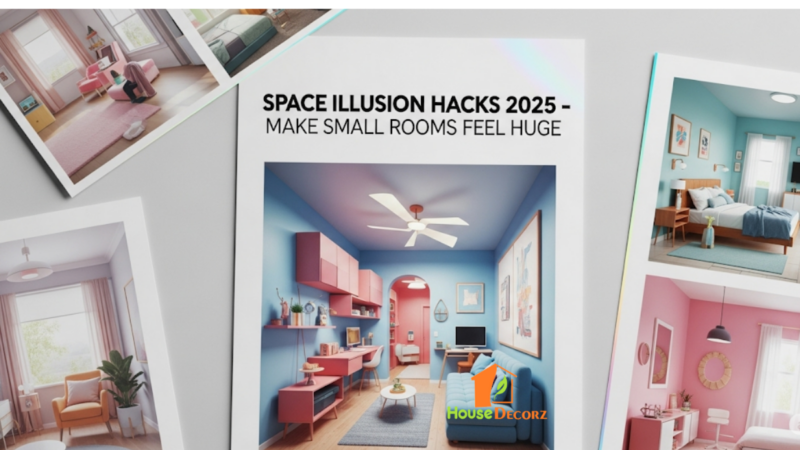Modern Pooja Room Designs for Apartments in 2025

As apartment living continues to dominate urban landscapes in 2025, homeowners are finding creative ways to balance tradition with modernity. One of the most significant expressions of this is the transformation of the traditional pooja room.
Today’s modern pooja room designs for apartments focus on space efficiency, aesthetic integration, and spiritual comfort—without compromising on cultural authenticity.
This article walks you through a step-by-step understanding of how to design a pooja room that complements a modern apartment lifestyle, with a spotlight on compact mandir ideas and expert-backed home temple styling tips.
Understanding the Evolution of Pooja Room Designs
Historically, Indian homes reserved a dedicated room for pooja—separate from the main living space, often elaborately decorated with wooden or marble architecture. But as families moved into smaller, vertical housing units, the pooja room had to evolve.
Key shifts over time:
- Transition from large, standalone rooms to wall-mounted or corner mandirs
- Use of modular carpentry and smart lighting to enhance presence in limited spaces
- Integration of multi-functional furniture that accommodates both aesthetics and devotion
Step 1: Choosing the Right Location in the Apartment
The placement of your pooja space sets the tone for its spiritual energy and usability. According to Vastu Shastra, the northeast corner (Ishanya) is considered ideal for pooja rooms.
In modern apartments, consider these alternatives:
- Living Room Niche: A recessed wall section can house a stylish pooja shelf or mandir cabinet.
- Balcony Corner: Enclosed balconies with natural light create a peaceful and airy atmosphere.
- Kitchen Corner: Small kitchens often have unused corners ideal for compact shrines.
- Partition Mandir: Use wooden jaalis or glass panels to create a dedicated area in a hallway or living room.
Step 2: Compact Mandir Ideas for Small Spaces
For apartments, efficiency in design is key. Compact mandir ideas ensure functionality without taking up unnecessary space.
Popular 2025 design solutions:
- Wall-Mounted Units: Sleek wooden or acrylic mandirs fixed at eye level with storage drawers underneath.
- Foldable Panels: Mandir doors that double as artwork or mirrors when closed.
- Corner Floating Shelves: Ideal for minimalist homes—just a diya, idol, and incense holder.
- Modular Cabinets with Lighting: Built-in LED lights, hidden drawers, and ventilation for incense use.
Material trends:
- Engineered wood with laminate finishes
- Backlit stone panels or frosted glass for a divine glow
- White marble with golden accents for a luxurious, traditional-modern fusion
Step 3: Home Temple Styling for Aesthetic Harmony
Home temple styling plays a crucial role in blending spirituality with modern décor. A thoughtfully styled pooja room can serve as a visual and emotional centerpiece of the home.
Styling tips:
- Color Scheme: Stick to whites, golds, soft yellows, or earthy tones to evoke calm and purity.
- Lighting: Use warm-toned LED strip lights, backlit panels, or pendant lamps for ambient glow.
- Decor Accents: Incorporate brass bells, traditional urulis, and framed Sanskrit mantras.
- Storage Solutions: Use minimalist cabinets for pooja essentials to keep the area clutter-free.
Expert insight: Interior designer Ritika Mehta, known for blending Indian traditions with Scandinavian minimalism, advises:
“Think of the pooja space as a meditative zone. Even in compact apartments, a blend of thoughtful textures, neutral tones, and soft lighting can create a deeply spiritual ambiance.”
Step 4: Personalizing with Tradition
Personal touches keep the space sacred and meaningful. Consider these elements:
- Family Heirlooms: Incorporate a vintage idol or brass diya passed down generations.
- Festive Modularity: Use removable backdrops or seasonal elements for Diwali, Navratri, or Ganesh Chaturthi.
- Handmade Accessories: DIY torans, incense holders, and embroidered altar cloths add cultural charm.
Recommendation
7 Vastu Tips You Must Follow While Designing Home Interiors
10 Best Indoor Plants That Naturally Purify Air in Indian Homes
Plate Decoration Ideas: The Ultimate Guide
Good Feng Shui Main Entry Area Design
Spring Door Decoration Ideas to Brighten Your Entryway
How to Texture a Wall With a Roller
Red Roses: Growing Tips & Stunning Decoration Ideas for Your Home
Frequently Asked Questions (FAQ)
Q1: What is the best location for a pooja room in an apartment?
A1: Ideally, place the pooja area in the northeast corner. If that’s not possible, the east or north-facing walls are suitable alternatives.
Q2: How can I build a pooja room in a small apartment?
A2: Use wall-mounted mandirs, corner shelves, or compact modular cabinets with built-in storage and lighting to save space.
A3: Absolutely. Use partitions or place the mandir in a niche to maintain a sense of separation while blending it with modern décor.
Q4: Which materials are best for modern mandirs?
A4: Engineered wood, marble, glass, and metal combinations are popular for durability, ease of cleaning, and aesthetic appeal.
Final Thoughts
Modern pooja room designs for apartments in 2025 are a reflection of how urban homeowners are honoring traditions while embracing contemporary living.
From space-saving compact mandir ideas to elegant home temple styling, there are endless ways to create a sacred space that resonates with both heritage and lifestyle.
With thoughtful planning and a touch of creativity, even the smallest corner of an apartment can become a serene sanctuary for devotion.






